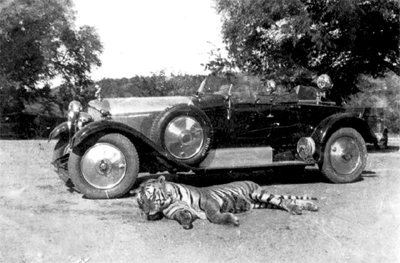Europe and the Ecological Transformation of the Tropical World in the 19th and 20th Centuries
The fundamental purpose of this project is to provide the first wide-ranging environmental history of the immense expansion of European power around the globe in the late 19th and early 20th centuries, what historians generally refer to as the ‘new imperialism’. Ever since the appearance of Alfred Crosby’s classic Ecological Imperialism in 1986, it is generally recognized European imperialism from the 15th century onwards powerfully reshaped the global environment in the early modern world, just as environmental factors moulded European expansion itself. There are excellent works on the worldwide environmental reach of the European empires, from early colonial crop transfers to the origins of conservationist thought. Yet the environmental history of the ‘new imperialism’ has hitherto been studied in rather piecemeal fashion, despite the fact that it marked the zenith of Europe’s global power. Research has not only centred overwhelmingly on the British empire to the exclusion of other European powers, it has also focused more on forestry and conservation as ‘colonial science’ rather than what principally drove many of the unprecedented ecological changes of this period: the worldwide commodity boom from the 1890s-1930s.
The project’s particular focus is on the environmental transformations caused by the explosive growth of commodity production and trade in Europe’s tropical colonies—transformations that still visibly shape our world today—and how they fitted into broader patterns of social, cultural and political change from c. 1880 to 1940. Although it opposes ‘apocalyptic’ accounts of colonial devastation by recognizing continuities with certain ‘developmentalist’ pre-colonial practices, it nonetheless insists that colonialism was, for most of the areas concerned, a decisive and largely negative milestone for the natural environment.
A key aim is to relate these environmental changes not only to political and economic expansion (the focus of most existing studies) but also to the wider cultural and ideological dimensions of imperialism: e.g. the cult of ‘efficiency’, the association of ecology and race, and the various cultural currents that shaped nature protection. The project thus makes an important contribution to several bodies of literature. It provides a much-needed ecological perspective on the wave of research on ‘globalization’ in the 19th-20th centuries; it broadens our view of the history of consumer society by examining the environmental impact of the tropical commodity boom; and it directly tackles a central desideratum of environmental history, namely the impacts of mass consumption beyond industrialized countries. A central concern of the project is to compare and connect across the European (primarily French, German, Dutch and British) empires as a means of contextualizing the hitherto rather ‘Britanno-centric’ literature on this topic.
The project targets several key commodities central to the imperial project—petroleum, copper, tin, cocoa, rubber and cotton—to determine the nature and degree of ecological change in core producer areas, how it was managed and the ability of indigenous peoples to resist or benefit from it. It then closely relates these stories to colonial efforts at nature preservation, resource conservation and agricultural improvement. By comparing and connecting across European empires, it explores the trans-imperial exchange of knowledge and practices while also highlighting the different effects of particular commodities in diverse localities.
